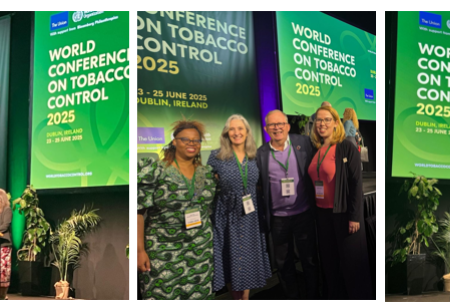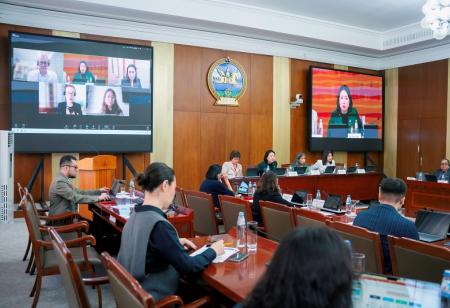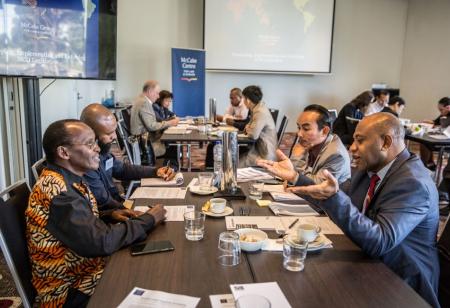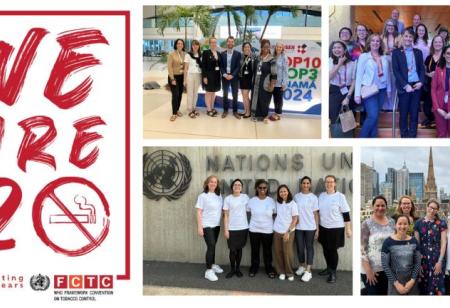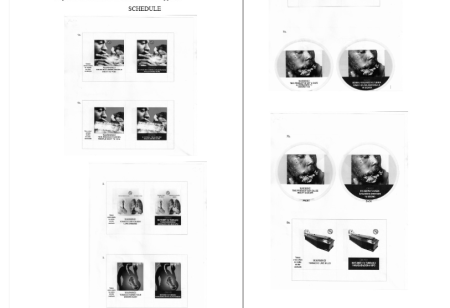
Investment tribunal dismisses Philip Morris Asia’s challenge to Australia’s plain packaging - 17 May 2016
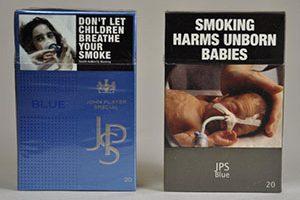
On 17 December 2015, the Arbitral Tribunal dismissed Philip Morris Asia’s challenge to Australia’s plain packaging laws under a 1993 bilateral investment treaty between Australia and Hong Kong. On 16 May 2016, the Permanent Court of Arbitration published the Arbitral Tribunal’s Award on Jurisdiction and Admissibility. The Award provides the reasons for the Tribunal’s decision. The Tribunal held that:
the initiation of this arbitration constitutes an abuse of rights, as the corporate restructuring by which the Claimant acquired the Australian subsidiaries occurred at a time when there was a reasonable prospect that the dispute would materialise and as it was carried out for the principal, if not sole, purpose of gaining Treaty protection. Accordingly, the claims raised in this arbitration are inadmissible and the Tribunal is precluded from exercising jurisdiction over this dispute (588)
Australia’s plain packaging legislation
On 29 April 2010, the Australian Government announced that it would introduce mandatory plain packaging of tobacco products as part of a comprehensive strategy to reduce smoking rates in Australia. The Tobacco Plain Packaging Act 2011 was passed by the Australian Parliament in November 2011 and received Royal Assent in December 2011. All tobacco products sold in Australia have been required to comply with the legislation since December 2012. The legislation bans the use of logos, brand imagery, symbols, other images, colours and promotional text on tobacco products and tobacco product packaging. Packaging must be a standard drab dark brown colour in matt finish. Packs are distinguished by brand and product name printed in a standard colour, position, font size and style. Graphic health warnings are required on 75% of the front and 90% of the back of tobacco packaging.
The objects of the Tobacco Plain Packaging Act are to improve public health by (s3(1)): discouraging people from taking up smoking, or using tobacco products; encouraging people to give up smoking, and to stop using tobacco products; discouraging people who have given up smoking, or who have stopped using tobacco products, from relapsing; reducing people’s exposure to smoke from tobacco products; and to give effect to certain obligations that Australia has as a party to the World Health Organization’s Framework Convention on Tobacco Control (FCTC). These objects are to be achieved by (s3(2)) regulating the retail packaging and appearance of tobacco products in order to: reduce the appeal of tobacco products to consumers; increase the effectiveness of health warnings on the retail packaging of tobacco products; and reduce the ability of the retail packaging of tobacco products to mislead consumers about the harmful effects of smoking or using tobacco products.
Plain packaging is recommended by guidelines on Article 11 (packaging and labelling) and Article 13 (tobacco advertising, promotion and sponsorship) adopted by the Conference of the Parties of the WHO FCTC.
Philip Morris Asia’s investment treaty challenge
Philip Morris Asia (PMA) challenged Australia’s plain packaging legislation under a 1993 bilateral investment treaty between Australia and Hong Kong. It filed its Notice of Claim on 27 June 2011 and its Notice of Arbitration on 21 December 2011. PMA claimed that the Australian Government had breached its obligations under the treaty, arguing that the plain packaging legislation expropriates its intellectual property, and that PMA was not afforded fair and equitable treatment. PMA sought an order that the Australian Government suspend enforcement of the legislation and compensate it for loss suffered through complying with the legislation, or compensate it for loss suffered as a result of the enactment and continuing application of the legislation. It sought ‘an amount to be quantified but of the order of billions of dollars’. (para 8, Award)
The Australian Government’s defence — substantive and jurisdictional
The Australian Government defended the proceedings. It argued that:
The plain packaging legislation forms part of a comprehensive government strategy to reduce smoking rates in Australia. This strategy is designed to address one of the leading causes of preventable death and disease in Australia, which kills around 15,000 Australians each year, causes chronic disease for many others and is a significant burden both on productivity and on Australia’s health care system. The implementation of these measures is a legitimate exercise of the Australian Government’s regulatory powers to protect the health of its citizens. (para. 3)
The Australian Government argued that the case should be dismissed on jurisdictional grounds without requiring a hearing on the merits of the claim. It argued that the initiation of the proceedings constituted an ‘abuse of right’ on the basis that Philip Morris Asia had only acquired its shareholding in the Australian business on 23 February 2011, nearly 10 months after the Australian Government had announced, on 29 April 2010, that it would introduce plain packaging.
The Tribunal’s decision — initiation of the proceedings an ‘abuse of rights’
The Tribunal agreed with the Australian Government’s argument that the initiation of the proceedings constituted an ‘abuse of rights’. The Tribunal set out the relevant legal test as follows: ‘the initiation of a treaty-based investor-State arbitration constitutes an abuse of rights (or an abuse of process, the rights abused being procedural in nature) when an investor has changed its corporate structure to gain the protection of an investment treaty at a point in time when a specific dispute was foreseeable’. (554) A ‘dispute is foreseeable when there is a reasonable prospect … that a measure which may give rise to a treaty claim will materialise.’ (554)
The Tribunal concluded that, at the time of the restructuring, the dispute that materialised subsequently was foreseeable to PMA. It held that ‘at least after the 29 April 2010 announcement, it was reasonably foreseeable that legislation equivalent to the Plain Packaging Measures would eventually be enacted and, consequently, a dispute would arise’. (569)
The Tribunal concluded ‘that the main and determinative, if not sole, reason for the restructuring was the intention to bring a claim under the Treaty, using an entity from Hong Kong’ (584). The Tribunal rejected PMA’s argument that minimisation of PMA’s tax liabilities or other business reasons were determinative factors for PMA’s restructuring. The Tribunal noted that ‘no witness who was familiar with the rationale of the restructuring was presented by [PMA] in the proceedings’. The ‘persons most closely involved in the restructuring decision were not offered as witnesses by [PMA]’. Nor were ‘contemporaneous corporate memoranda or other internal correspondence sufficiently explaining the business case for the restructuring in detail’ presented to the Tribunal. (582)
Costs of the proceedings
The Tribunal released its Final Award Regarding Costs in July 2017, which we cover in our post Philip Morris ordered to pay Australia for costs of defending tobacco plain packaging investment challenge.
Further resources
All publicly available documents associated with the case are available from the Permanent Court of Arbitration’s case page for Philip Morris Asia v Australia
For discussion of the substantive legal issues that would have been at issue if the case had proceeded to the merits, see:
- Tania Voon and Andrew Mitchell, ‘Implications of international investment law for plain tobacco packaging: lessons from the Hong Kong-Australia BIT’ (2012)
- Andrew Mitchell and Sebastian Wurzberger, ‘Boxed In? Australia’s Plain Tobacco Packaging Initiative and International Investment Law’ (2011)
- Andrew Mitchell and Tania Voon, ‘Time to Quit? Assessing International Investment Claims Against Plain Tobacco Packaging in Australia’ (2011)

